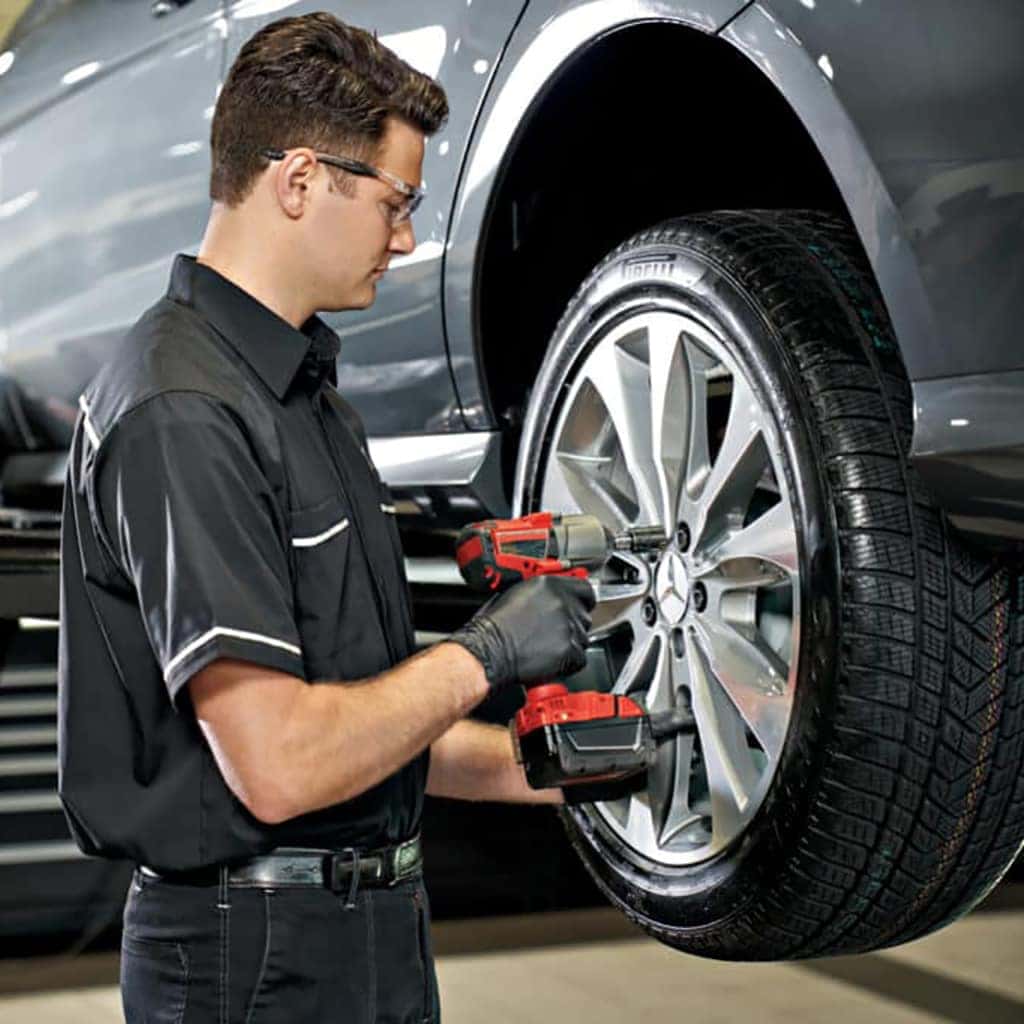Morris Tires: Your Partner for Expert GMC Tires Service
Morris Tires: Your Partner for Expert GMC Tires Service
Blog Article
Tire Service: The Effect of Climate Condition
When it involves making certain ideal efficiency and security when traveling, understanding the influence of weather on tire solution is important. From scorching warm to icy roadways, each weather component can significantly influence tire functionality and overall driving experience. By delving into the impacts of differing climate condition on tires, chauffeurs can obtain valuable understandings that may enhance their automobile's performance and longevity. In this conversation, we will certainly discover the intricate connection in between weather condition conditions and tire service, clarifying the significance of weather-specific tire maintenance methods and factors to consider.
Warm and Tire Performance
When revealed to high temperatures, tires experience modifications in performance that can significantly affect vehicle safety and handling. The warmth generated from extended driving or hot climate conditions causes the tire rubber to soften, leading to decreased tread life and increased wear. As the rubber ends up being softer, the tire's grasp when driving lessens, impacting braking ranges and overall grip. In severe instances, too much heat can also cause tire blowouts, positioning an extreme safety danger to the vehicle and its owners.

Winter Results
Cold climate conditions can have a significant influence on tire performance and security. As temperature levels drop, tire rubber can harden, leading to reduced traction on icy or snow-covered roads. In cold climate, tires may likewise shed air stress much more rapidly, which can affect dealing with and gas performance. In addition, cold temperature levels can trigger tire sidewalls to stiffen, boosting the risk of damages from holes or various other roadway hazards.
To reduce the impacts of winter on tires, it is essential to on a regular basis inspect tire stress and inflate them to the maker's recommended levels. Using winter season or all-season tires developed for chilly climate problems can additionally improve grip and grasp on icy or snowy roadways. Proper tire upkeep, including regular evaluations for wear and damages, becomes much more crucial during colder months to ensure optimal efficiency and security.
Rainy Issues Impact
Tires with damaged treads are more prone to hydroplaning, where a layer of water develops up in between the tire and the road surface, leading to loss of grip. To combat this, vehicle drivers must regularly examine their tires for ample walk depth and take into consideration investing in tires specifically created for wet problems.
Additionally, rainy climate can additionally decrease exposure, making it testing for vehicle drivers to see navigate to these guys the roadway in advance plainly (GMC Tire Service). In such conditions, it is necessary to adjust driving rates accordingly and maintain a risk-free complying with range to permit abrupt stops. Properly inflated tires can additionally assist in preserving control on wet roadways by offering far better handling and grip
Snow and Tire Safety
Snow-covered roads present unique difficulties for vehicle drivers, stressing the importance of correct tire option and maintenance. When driving in snowy problems, having the right tires can make a significant distinction in safety and performance. Winter tires are created with special rubber compounds and step patterns to supply much better traction on snow and ice compared to all-season tires. The deeper footsteps and sipes of winter months tires assist hold the roadway better, minimizing the danger of slipping and moving.

It is important to follow manufacturer instructions when utilizing and installing tire chains to protect against damage to the tires and vehicle. By selecting the right tires, preserving correct rising cost of living, and thinking about extra grip help like tire chains, motorists can improve their security when browsing snow-covered roads.
Weather-Related Tire Maintenance
Weather-related tire maintenance incorporates a variety of methods aimed at guaranteeing ideal tire function and longevity in various weather situations. One vital element of weather-related tire try this web-site maintenance is tire stress policy. Evaluating tire tread frequently and replacing tires when walk wear reaches a specific deepness is essential for maintaining traction and security in negative weather condition.
Conclusion
In final thought, weather problems have a substantial effect on tire efficiency and safety and security. From warmth influencing tire pressure and wear to cool climate lowering grip, it is important to consider the weather when keeping and using tires.
In this discussion, we will certainly check out the intricate partnership between weather problems and tire solution, losing light on the relevance of weather-specific tire maintenance practices and considerations.

Report this page